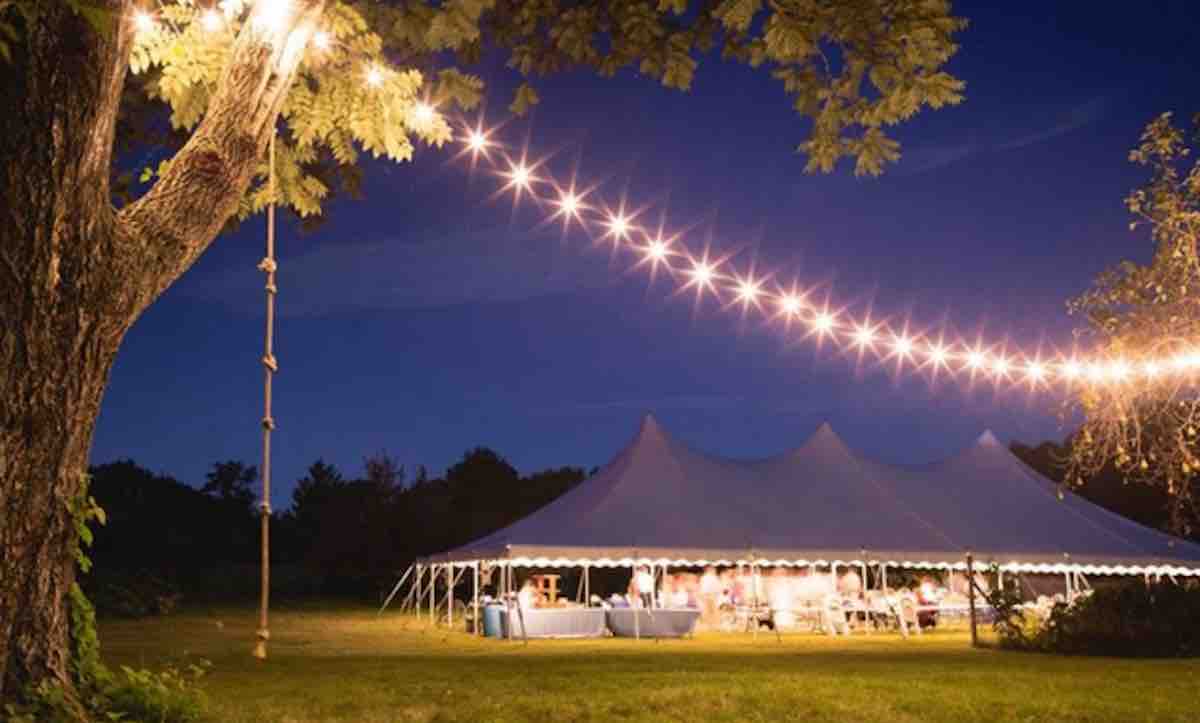Plan a wedding, save a farm
Sam McElhinney MBA ’17 found a way to help New England small farms, family estates, and orchards by creating a system that enables them to host events easily.
Written by Julie Barr
MIT News
Despite conservation efforts and a resurgence in local farming, New England is still losing about 100 agricultural acres to development every day. For many small farms, family estates, orchards, and other largely undeveloped properties, the cost of taxes and maintenance alone can make keeping their land too expensive.
Sam McElhinney, born and raised in Massachusetts and an avid lover of the outdoors, always wanted to find a way to conserve the open lands he so loved. It wasn’t until McElhinney, who was on the lumberjack team and president of the fishing club at Dartmouth College, reached his late 20s and he and many of his friends began planning their own weddings that the idea hit him.
“Traditional, professional event venues are built to more or less mass produce events,” says McElhinney. “I was away one weekend with friends at a farm and they were all talking about how generic weddings felt at these commercial event venues and I said why not just get married somewhere like this and create the entire thing to be the way you want?”
RELATED: Girl’s Lemonade Recipe to Saves Bees Turned Into Million Dollar Whole Foods Deal
Some couples do get married on a farm owned by a family member or friend — but unless you know someone willing to do this as a one-time favor, getting a stranger to transform an old estate into a wedding venue poses many problems. McElhinney saw the opportunity in solving those problems: If he figured out the logistics, he could give small farms a low-time impact but high-value solution to getting the money they need all while giving couples a unique, customizable space for their wedding. McElhinney started Mayflower Venues, which touts an automated, intelligent technology system that enables these non-traditional spaces to use modern systems and tools to host a small number of weddings a year.
“A number of the venues on our website had couples pulling up their driveway knocking on their barn door asking if they could have a wedding in their yard,” says McElhinney. “They always turned them away because they had no idea how to figure out insurance, what price to charge, how to tell them what caterers would need. With a full-time job as a farmer, they couldn’t handle it.”
So, Mayflower Venues is doing all that work for them. Since officially launching the company last fall, McElhinney and his team — and the platform — have hosted one event, gotten more than 40 venues on board, and booked dozens of events for 2018 and 2019.
CHECK OUT: Newlyweds Track Down Wedding Crashers Who Were Life of the Party
Mayflower’s role, says McElhinney, really becomes that of the venue coordinator. “We identify these spaces and digitize them. We built this entire proprietary on-boarding app by working with a variety of expert wedding planners, caterers, and vendors to figure out what are the inputs couples will need and we collect all that info and create a comprehensive set of wedding planning tools specific to each venue’s eccentricities. We know how many feet of hose a caterer would need to reach the potable water spout at a historic family estate, for example, and the platform presents that information to the couple and their vendor at the right time.”
McElhinney is focused on the unique, sustainable nature of the properties. “We only allow one wedding a weekend at each venue. We don’t want a wedding factory, we don’t want three weddings going into a small town in the Berkshires in 72 hours; but we do want one wedding going into a small town in the Berkshires because that’s great revenue, for catering and accommodations. We’re really excited about bringing this millennial revenue into rural America and that is a very sustainable action.”
Reprinted with permission from MIT News
Say ‘I Do’ To Sharing This Great News: Click To Share With Your Friends – Photo by Mayflower Venues




















